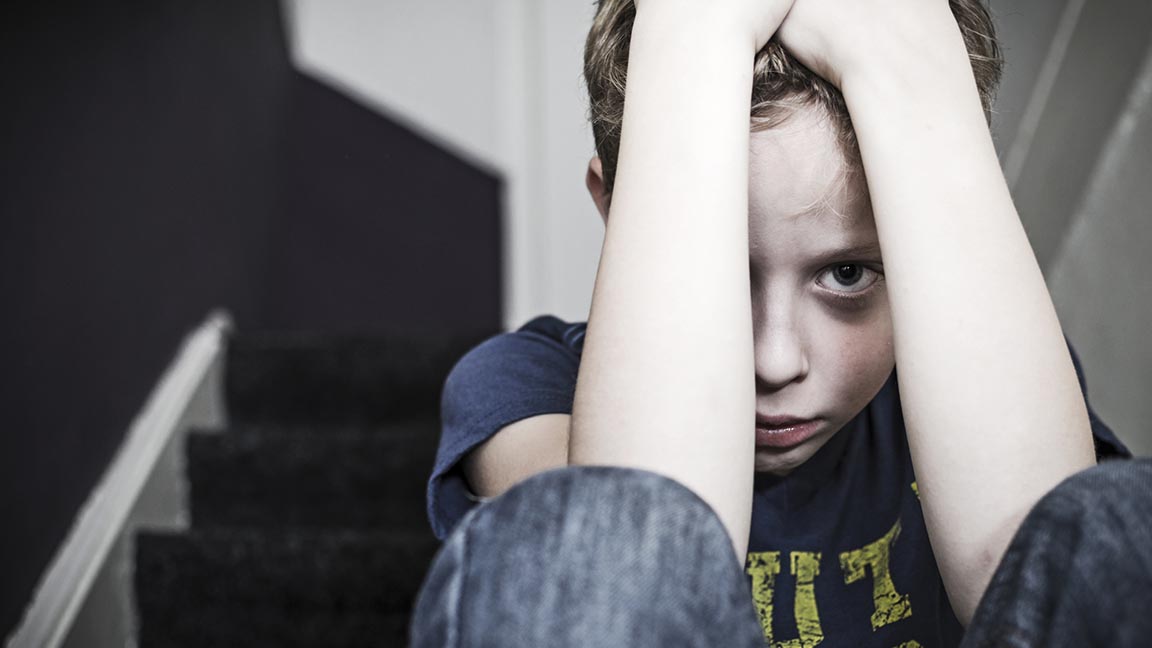Children with anxiety disorders can experience changes in behavior, become withdrawn or emotional, avoid school or social settings and deal with a range of physical symptoms. Parents may not be sure how to help.
An increasing number of children and teenagers are struggling with anxiety. Pressure to achieve, safety concerns, trauma and inescapable social media — the stress can pile up and feel overwhelming to some children, says Dr. Jill Aiken, a pediatrician at Tidelands Health Pediatrics in Myrtle Beach
“Children typically don’t have coping skills to manage these kinds of challenges,” Dr. Aiken says. “It can be too much for an adult, let alone teenagers or younger children.”
When to be concerned
It’s normal to have fears or worries, but it’s not normal for those fears to interfere with daily life. If a child is so worried about tests they routinely perform poorly or so anxious about social activities they choose not to go, it could be a sign they need help.
If you think your child is experiencing an anxiety disorder, here are four things you can do:
Talk to your child
One of the most effective ways to help your child is something you can do right now: Talk to them about how they’re feeling. You can ask direct questions about potential stressors, which can help them feel less isolated.
Dr. Aiken suggests drawing comparisons between your own life and theirs: “When I was your age, we had to take these tests, too, and I would get worried about how I was going to do. But I know you have more stress today than I did at your age.”
Sitting down for dinner together at least a few times a week can go a long way toward helping your child and you get more comfortable having those conversations. Try talking about the “roses and thorns” of your days, Dr. Aiken says — roses being something that happened that was exciting or pleasurable and thorns being something disappointing or difficult.
Check expectations
It’s good to want your child to be successful — but consider whether the message you think you’re sending and the one your child is receiving are the same.
As much as you may want your child to become a doctor, for example, what may seem like encouragement to you may feel like a directive to them.
“You could unknowingly, by encouraging your child, make them feel like if they don’t accomplish those things, then you’re disappointed and they let you down, or that they’re trapped,” Dr. Aiken says.
Remember that younger kids and teenagers need time to relax, play and hang out with their friends. Flexibility is key.
Detox from social media
It’s easy to underestimate the effect that social media can have on mental health. That’s why it’s so important to be intentional about how you talk about it with your kids. Help them think critically and rationally about the effects of social media.
“Social media can amplify kids’ anxieties,” Dr. Aiken says. “There’s no break from it.”
You can set rules such as no screens at the dinner table or during the hour before bed. You can even make a deal with your child when they get a phone: They have the device for their safety, but there will be limits on how often they can use it.
Consult with a professional
Talking with your pediatrician can help you figure out if the level of anxiety your child is experiencing is normal or not. Professionals use screening tools that uncover more information than a child is likely to say on their own.
Enjoying this story? It’s free to republish. Learn more.
“There are definitely treatments available,” Dr. Aiken says. “Many children with a diagnosed anxiety disorder are not getting treatment. And anxiety disorders are highly treatable.”
Cognitive behavioral therapy can help children change the way they think about their fears and give them tools to better cope. And medications like antidepressants are effective and safe, she says. Studies have shown that a combination of therapy and medication over just 12 weeks is shown to have a positive impact on 80 percent of children; 65 percent report no more symptoms.
But finding the right therapist can be challenging. Ask your pediatrician or primary care provider for a list of recommendations and go from there.

Dr. Jill Aiken
Pediatrician, Tidelands Health Pediatrics
Bio
Dr. Jill Aiken, a board-certified pediatrician, practices at Tidelands Health Pediatrics in Myrtle Beach.
Learn MoreMedical Education
Education
Wofford College
Medical University of South Carolina
Residency
Medical University of South Carolina, Pediatrics
Meet the Expert
Dr. Jill Aiken
Dr. Jill Aiken, a board-certified pediatrician, practices at Tidelands Health Pediatrics in Myrtle Beach.






